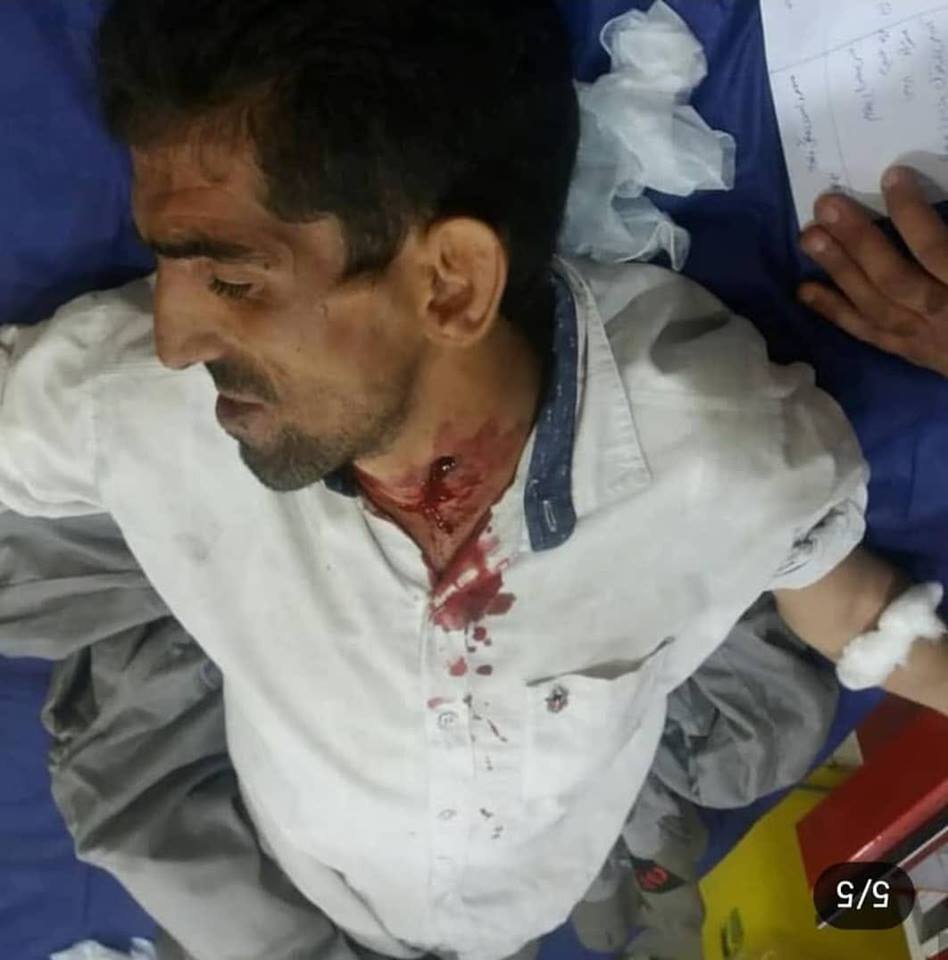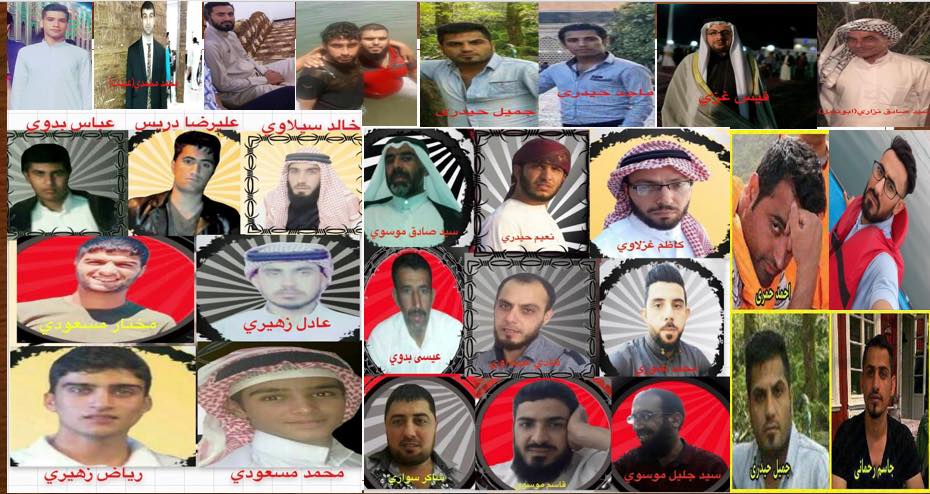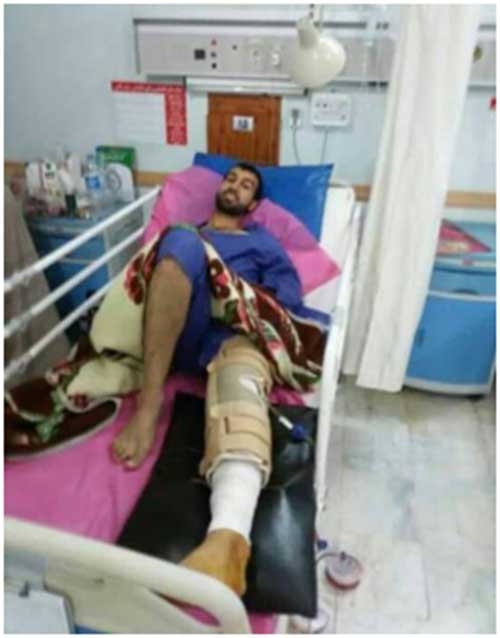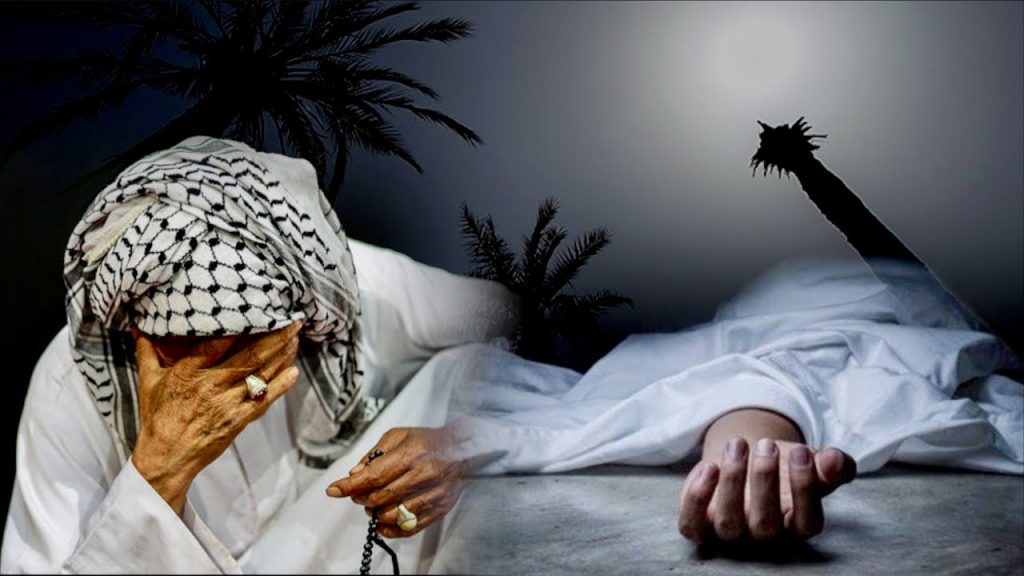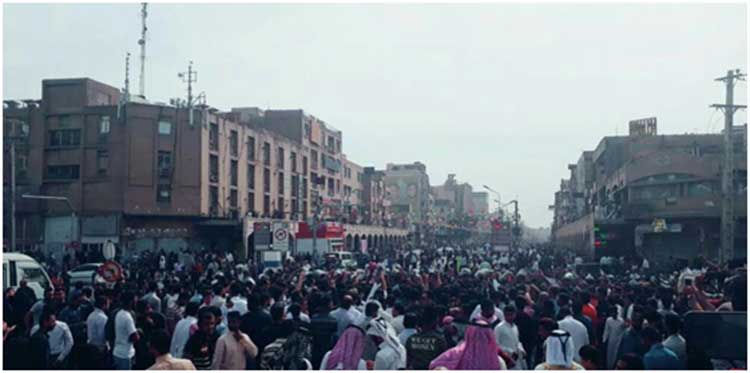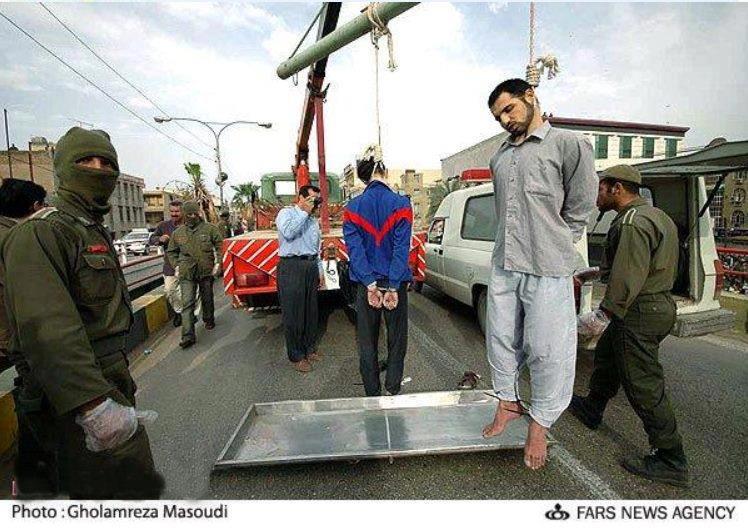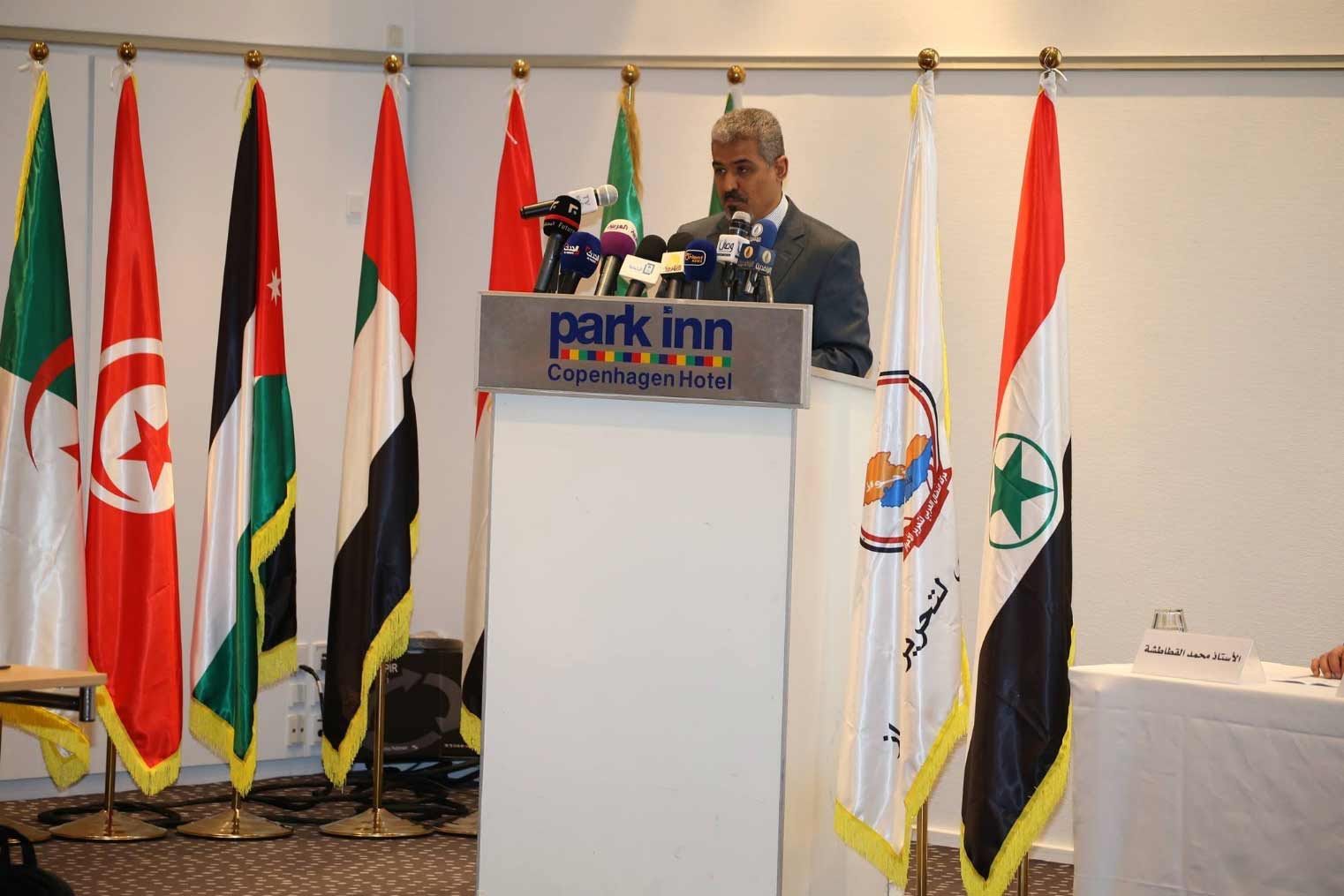
Habib Jaber, the head of the Arab Struggle Movement for the Liberation of Ahwaz, has been interviewed on the Saudi TV station “alekhbariya” where he spoke about the movement, its struggle, and the future vision for it, and the Iranian regime.
_____________________________
Between revolution and reformation, there is always an unstable period of time where the direction of the movement becomes clear only once a firm goal is outlined.
This epitomizes the situation of a prominent Arab struggle leader who hails from the Arab lands of Ahwaz region in the south and south west of Iran, which has long been neglected by other Arab nations.
From his exile in Demark, Habib Jaber, the head of the Arab Struggle Movement for the Liberation of Ahwaz, is leading revolutionaries of Ahwaz in rising up against the Iranian regime.
Jaber was born in the capital city of Ahwaz in 1970. In his early adulthood, he worked as a teacher. But in 1999, he collaborated with other revolutionaries to found the Arab Struggle Movement for the Liberation of Ahwaz. The movement was established nationally, so it managed to attract a new generation of supporters to its ranks. The movement succeeded in establishing itself firmly as a grassroots operation, encouraging and preparing Ahwazis to unify in resisting the Iranian brutal occupation.
Such resistance continued until the outbreak of a 2005 uprising, in which the Arab Struggle Movement for the Liberation of Ahwaz participated extensively. This was considered their first genuine action on the ground. It was a successful choice for the movement and the other national trends in the region of Ahwaz. These efforts marked a new chapter for the Ahwazi struggle.
The interview has been made as follow:
Host: would you please educate us briefly about the plight of Ahwazi people?
Jaber: the land of Ahwaz, which is the home of the ancient Elam civilization, the homeland of the Arab people of Ahwaz with its clear borders, bounded from the west by the Republic of Iraq, from the south by the Arabian Gulf, the Sea of Oman from the east and from the north by Persia (Iran). The people: The Arab people of Ahwaz who are an integral part of the Arab nation in terms of history, language, culture, affiliation, and identity. The Arab people of Ahwaz had been experiencing woes caused by the policies of the Iranian regime represented in deprivation, improvisation, insult, humiliation, attempts to obliterate identity, not recognizing their just cause and denying them very basic rights such as learning in the mother language and imposing Persian language across different stages of education, official departments, names of streets, districts, villages and towns as well as banning Arab uniform, and giving newborns Persian names.
These policies also included carrying out settlement projects where the Persian settlers are brought from across Iran to settle in the Arab areas. They are given a myriad of services and advantages at the expense of the indigenous people. On the other side, the Arabs are subject to forced displacement, genocide, plunder and depravation of resources, confiscating agricultural lands under the guise of carrying out government-managed projects. These projects are aimed at enhancing policies of racism conducted by the Mullah regime which proved to be more hateful and dangerous to Arabs than the regime of Shah.
Host: How would you assess the progress of the Ahwazi movement today?
Jaber: The Ahwazi issue is actually witnessing a qualitative transformation this year compared to those past. We are making very good progress in terms of publicizing our plight, which has long been kept in darkness due to a media blackout imposed upon us by the Iranian regime. Also, rates of awareness, struggle, and resistance from our people are on the rise. However, solidarity from the rest of the Arab world in media and at official and unofficial levels is severely lacking.
Host: Could you paint us a picture of this? At what point is the revolution now, both at home and abroad?
Jaber: The Arab Struggle Movement of Ahwaz has been established on national grounds, with the foremost aim of confronting the Iranian occupation. Our ultimate goal is to achieve the complete liberation of Ahwaz. Over these past years, the movement has managed to achieve some of its aims through confronting the Persian enemy in a multitude of ways. We have succeeded in taking our just cause to new heights in terms of making the Arab world and international organizations more aware of our plight. In the past three years, our cause has seen significant coverage in the media. The movement has made great efforts to bring the issue into focus for the media in the Arab world and internationally. We even managed to get our voices heard by powerful leaders in a variety of Arab regions.
HOST: How do you see the ongoing situation in the region and its impact on the Ahwazi plight?
Jaber: As the new US administration came into power, things have changed completely for us. As you know, the former US administration of Barrack Obama was on very good terms with Iran and its practices in the region. There is a different agenda by the new US administration which aims to support the non-Persian peoples, and a genuine will to change this fascist regime. This will absolutely help us achieve our goals as a just national cause.
HOST: Are there any tangible achievement you’ve made on the ground that could progress your struggle?
Jaber: We have very strong presence on the ground. Our movement had been founded, organized, and financed by the very Arab people who themselves live in Ahwaz. We still have the same strong presence on the ground in all aspects, and our people are well aware of this fact. More recently, we have started to forge alliances with other non-Persian ethnicities such as Azari Turks, Kurds, and Baluchis, as we all have a common ground and enemy. Based on these commonalities, we have begun to coordinate in building a unified front to confront the Iranian occupation. This coordination can be seen already in terms of media appearances and even working jointly on the ground at home.
HOST: How would you classify the movement as it relates to other Iranian opposition groups?
Jaber: As I have just mentioned, our strategy is based on building new alliances with the non-Persian ethnicities. This approach is vital for us, since we just do not have the capacity to confront the Iranian occupation alone. Therefore, we opted for this strategy as we believe in joint coordination as a tool to confront the Iranian regime. We are working to actively build this front made up of non-Persian peoples.
HOST: In the same context, does the movement have any ties with the official Iranian opposition?
Jaber: Absolutely not. We do not have any ties with the regular Iranian opposition which works under the umbrella of the regime and represent the Persian agenda. Their rhetoric is in no way different than that of the regime. They are racist, refuse to accept others, and do not recognize the rights of different ethnicities. As such, most of us non-Persian people have no connections to those entities. We’d rather have strong ties with our more welcoming non-Persian peoples.
HOST: But let me suggest that you are in need today of extending your hand to every movement that voices opposition to the regime – be it the official opposition or groups of non-Persian ethnicities – since you are supposed to coexist together after the demise of the regime.
Jaber: The right to self-determination is a fundamental right of peoples, and it is guaranteed by international laws. If the Iranian opposition were to recognize the rights of non-Persian peoples, then we could shift our present position drastically. But as long as this opposition refuses to recognize our legitimate rights, we shall have no common ground.
The non-Persian peoples of Iran, like the occupied Arab people of Ahwaz, suffer from Persian chauvinism and the denial of political, cultural, social and economic rights. And based on the common interest in overthrowing the racist regime in Tehran to facilitate the supreme goal of liberation, the Movement shall cooperate with the factions, parties, and organizations representing those peoples believing in the right of the Ahwazis to decide its own fate and get rid of occupation.
The movement of the Arab struggle for the liberation of Ahwaz, one of the factions of the Ahwazi national revolution, is fighting alongside it; shouldering part of the responsibility for the Ahwaz struggle. It seeks coordination in joint fieldwork with the other Ahwazi organizations. And it plans to consolidate and strengthen national unity and it does not consider itself an alternative to the other movements at home and abroad.
Also, our refusal to ally ourselves with the official Iranian opposition does not mean that we are against their stance of opposing the regime’s agenda and activities. Toppling this regime will be the most important step towards attaining our rights as non-Persian ethnicities. We are in no way against entities resisting the Iranian regime, such as People’s Mujahidin of Iran (PMOI) or any other movement which have adopted the same position, as this regime represents the main hindrance on the path to our full liberation.
HOST: But don’t you see how this divergence will weaken your front, since you and the opposition need to strengthen each other?
Jaber: First, let me explain that we are not a political opposition. We are people occupied by foreigners, and we are struggling to reclaim our rights. Our foremost demand is full liberation from occupation, which is completely different than the demands of the regular Persian opposition. Second, the real power lies with the non-Persian peoples, who make up about 65 – 70 percent of Iran’s geography – unlike the official opposition. Arabs, Baluchis, and Azaris make up about 65 percent of Iran’s population and they are all longing for freedom. They want to attain independence from this regime, or any other regime that could take over Iran. And I now see that Arab and international entities are becoming aware of this fact.
HOST: OK. So why do many people sense that there is no genuine influence by those peoples on the ground?
Jaber: Let me disagree with you regarding this point, since the realities tell the opposite. Whoever follows the Ahwazi issue can see the continuous efforts made towards rejecting the occupation. We have demonstrations, military confrontations, and targeting oil and gas refineries to cripple Iranian regime economy used for suppressing our people and backing terrorism in the region. Ahwazis miss no opportunity to display their rejection of the Persian occupation. Baluchis also launch sporadic attacks on the Iranian forces – killing dozens of its security personnel. Yesterday, the Peshmerga, loyal to the Democratic Party of Kurdistan, conducted a massive attack which killed three IRGC officers. We need nothing but to coordinate our efforts to push us into the lime lite with a unified framework. Our weakness is not in our work on the ground, but rather, lies in the coverage from the media. We, as non-Persian peoples, are in the process of forming a strong front.
HOST: Who are the financial backers for the just cause of Ahwaz?
Jaber: we basically depend on our own resources, but there is an international desire now to support us. And I think that this support is sufficient, given we are still in the beginning stages. We are still suffering from a deliberate media blackout imposed upon us by the regime as well as some other Arab countries.
HOST: Do you think this blackout was imposed due to fear from the Iranian regime?
Jaber: Maybe this issue was influenced by complications and nuances beyond the control of these other Arab countries. But I think things have changed radically after the outbreak of the Syrian revolution, which exposed the enormity of the Iranian threat. For so long, we have been accused of exaggeration or bias against Iran when speaking of its practices. After Iran entered Syria and killed thousands of its people, the vicious aims of the Iranian regime were exposed. This development helped prove our credibility.
HOST: Is there any project countering Iran – whether by the non-Persian peoples or the Arab countries – in which you can partake?
Jaber: The true aim of the Iranian regime is now totally exposed – what with the regime officials boasting about the annexation of four Arab nations, as well as seizing control of Ahwaz more than nine decades ago. But Arabs have finally decided to have their own project countering Iran. It is “Operation Decisive Storm” is a project aimed at deterring expansionist schemes of the Iranian regime in the region. This landmark operation helped Arabs retains some sort of self-confidence after having loosing so much due to the annexation of Iraq to Iran on a plate. Occupation of Iraq shook the strategic balance in the region – enabling Iran to spill over control into other countries up until the launch of this blessed operation.
The movements initiated by Saudi Arabia and GCC states lay the groundwork for a genuine Arab project in the face of Iran. There will be a decisive storm in the north, and even in Ahwaz, since the Iranians are insistent on reviving their perishing empire. Iran’s scheme involves annexing all Gulf States to be able to bring their empire to light. “Operation Decisive Storm” quashed the expansionist dreams of Iran. Tehran has been accustomed to exporting crises and unrest to neighboring countries in order to keep its home front stable.
But things now are different, and the remarks from crown prince Mohammed bin Salman, in which he affirmed the battle shall be moved to inside Iran, reiterate the assertion that there is a strong Arab project to confront the Iranian regime. Iran is no longer controlling the region, or behaving loosely without being held accountable. Also, Saudi Arabia has succeeded in isolating Iran internationally, and we can see that in the radical change of the US policy.
HOST: In conclusion, let me ask you about your outlook on the future of the Iranian regime in light of the ongoing situation in the region?
Jaber: The Iranian regime has been blacklisted as a sponsor of terrorism worldwide along with al-Qaeda and ISIS. The entire world has agreed upon this fact, and it has become convinced that this regime should be brought down. There is a genuine will to do so. There are strong expectations that this regime will not celebrate a 40th anniversary of its revolution. And we, as Ahwazis, will be participating significantly in toppling this regime as a means to liberate Ahwaz.
By Rahim Hamid, an Ahwazi activist based in the USA

